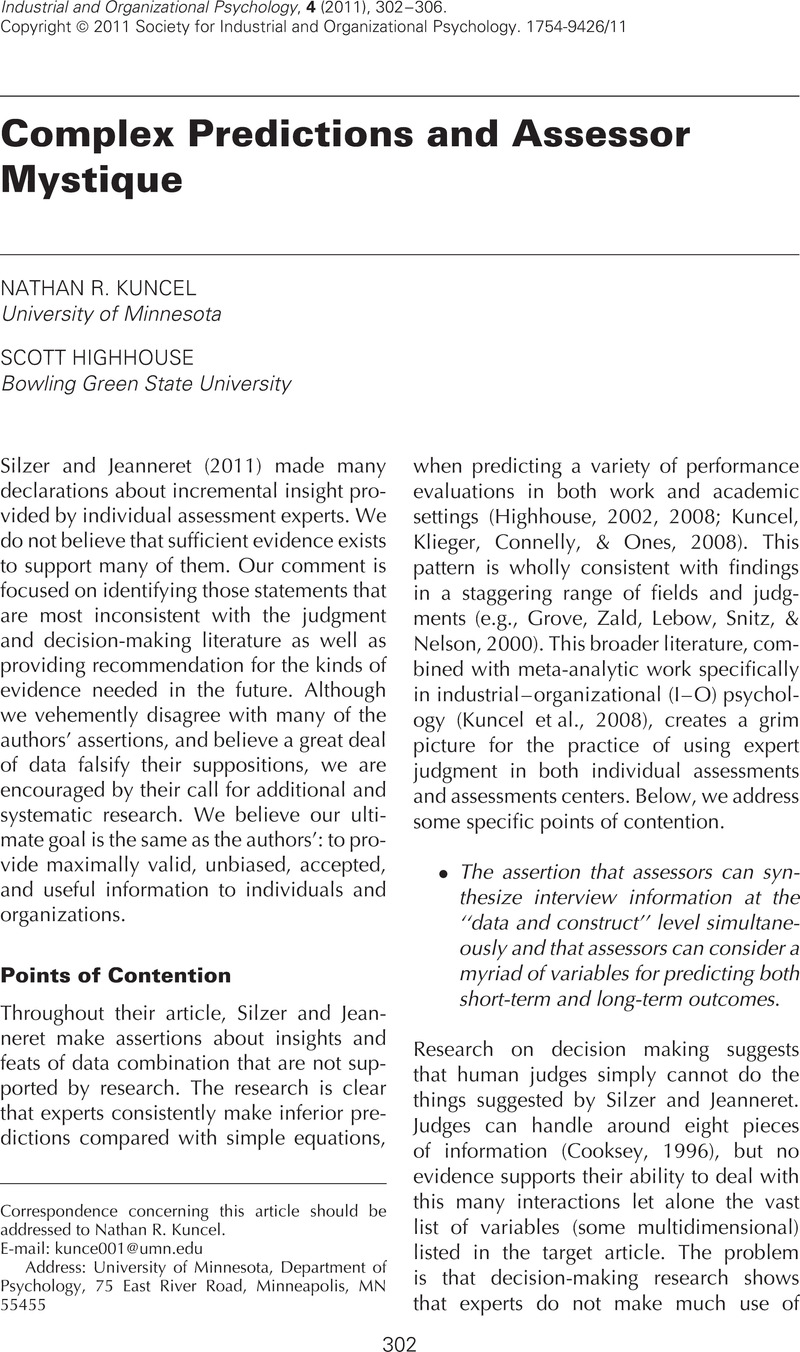Crossref Citations
This article has been cited by the following publications. This list is generated based on data provided by Crossref.
Jeanneret, Richard
and
Silzer, Rob
2011.
Individual Psychological Assessment: A Core Competency for Industrial–Organizational Psychology.
Industrial and Organizational Psychology,
Vol. 4,
Issue. 3,
p.
342.
Nolan, Kevin P.
and
Highhouse, Scott
2014.
Need for Autonomy and Resistance to Standardized Employee Selection Practices.
Human Performance,
Vol. 27,
Issue. 4,
p.
328.
Muleya, Vuyani R.
Fourie, Linda
and
Schlebusch, Sandra
2017.
Ethical challenges in assessment centres in South Africa.
SA Journal of Industrial Psychology,
Vol. 43,
Issue. 0,
Weldon, Paul T.
Fletcher, Clive
and
MacIver, Rab
2017.
The predictive validity of individual psychological assessments in selecting UK public sector senior managers.
International Journal of Selection and Assessment,
Vol. 25,
Issue. 1,
p.
11.
Highhouse, Scott
Zickar, Michael J.
and
Melick, Sarah R.
2020.
Prestige and relevance of the scholarly journals: Impressions of SIOP members.
Industrial and Organizational Psychology,
Vol. 13,
Issue. 3,
p.
273.
Yu, Martin C.
and
Kuncel, Nathan R.
2022.
Testing the value of expert insight: Comparing local versus general expert judgment models.
International Journal of Selection and Assessment,
Vol. 30,
Issue. 2,
p.
202.
Vosburgh, Richard M.
2022.
Closing the academic-practitioner gap: Research must answer the “SO WHAT” question.
Human Resource Management Review,
Vol. 32,
Issue. 1,
p.
100633.
Hardegger, Simon Carl
2023.
Was bewirkt Psychologie in Arbeit und Gesellschaft?.
p.
31.
Highhouse, Scott
and
Brooks, Margaret E.
2023.
Improving Workplace Judgments by Reducing Noise: Lessons Learned from a Century of Selection Research.
Annual Review of Organizational Psychology and Organizational Behavior,
Vol. 10,
Issue. 1,
p.
519.
Spinu, Roxana M.
and
Corbeanu, Andreea
2024.
Toward a Better Future for Assessment Reports.
European Journal of Psychological Assessment,
Vol. 40,
Issue. 4,
p.
290.



